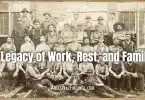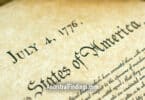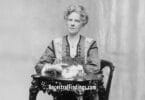Imagine it’s the early 1930s, and you’re gathered with family or neighbors around a small wooden box that fills the room with voices, music, and stories from far beyond your hometown. This is radio, and it’s transforming how people connect to the world around them. Just like today’s smartphones and social media, radio was a groundbreaking tool that brought the outside world into American homes, creating shared experiences and a sense of belonging during one of the nation’s most difficult times.
A New Kind of Connection
Before the rise of radio, news came from newspapers or word of mouth, often delayed by days or even weeks. But radio changed that instantly, allowing Americans to hear real-time reports of world events, live music, sports games, and political speeches. Suddenly, the nation felt smaller, and people could learn about events across the country as they were happening. Radio connected Americans in a way that was unprecedented, giving everyone from farmers to city dwellers a sense of being part of something bigger.
Political Voices Reaching Every Home
Radio also changed politics. While Hoover made some use of the platform, it was FDR who truly realized its power, especially with his famous fireside chats. Speaking directly to the American people in a warm, conversational style, FDR’s radio addresses offered comfort and clarity. People felt as if the president was in their living rooms, talking directly to them, which was a new and powerful experience. Although today we’re used to instant updates from world leaders, radio made this kind of connection possible for the first time.
Music, Entertainment, and Hope
During the Great Depression, when life was incredibly hard for many, radio offered a source of entertainment and escape. With shows that featured jazz, big band music, variety programs, and radio dramas, listeners could forget their worries, if only for a little while. Families often gathered together to listen, and those who didn’t have radios would sometimes join neighbors, making radio a shared experience. It brought joy and a bit of normalcy in uncertain times, much like streaming platforms or social media might provide a diversion today.
Bringing the World Closer Together
Radio didn’t just connect Americans; it broadened their view of the world. Listeners could tune into international news, hear about cultural events from other countries, and feel connected to places they might never visit. It’s hard to imagine now, but hearing voices and stories from other parts of the world was once a novelty. For many, radio provided their first real glimpse into life outside their community, inspiring curiosity and a sense of global awareness.
Radio’s Legacy in Modern Communication
Radio’s role as a unifier and information source paved the way for television and later, the internet. Today, we have access to instant news, live-streaming events, and global conversations at our fingertips. But it all started with radio, which first made it possible to connect people in real-time. While technology has evolved, the spirit of radio lives on, reminding us of a time when tuning in could brighten a household, foster connection, and bring the world a little closer.
For those interested in exploring this era further, here are some insightful books available
Radio’s America: The Great Depression and the Rise of Modern Mass Culture
This book delves into how radio influenced American culture during the Great Depression, highlighting its role in shaping modern mass media.
Emergency Broadcasting and 1930s American Radio
This work examines the critical role of radio during national emergencies in the 1930s, shedding light on its impact on public perception and government communication.
Radio’s Civic Ambition: American Broadcasting and Democracy in the 1930s
This book explores how radio broadcasting in the 1930s aimed to foster democratic engagement and civic responsibility among Americans.






